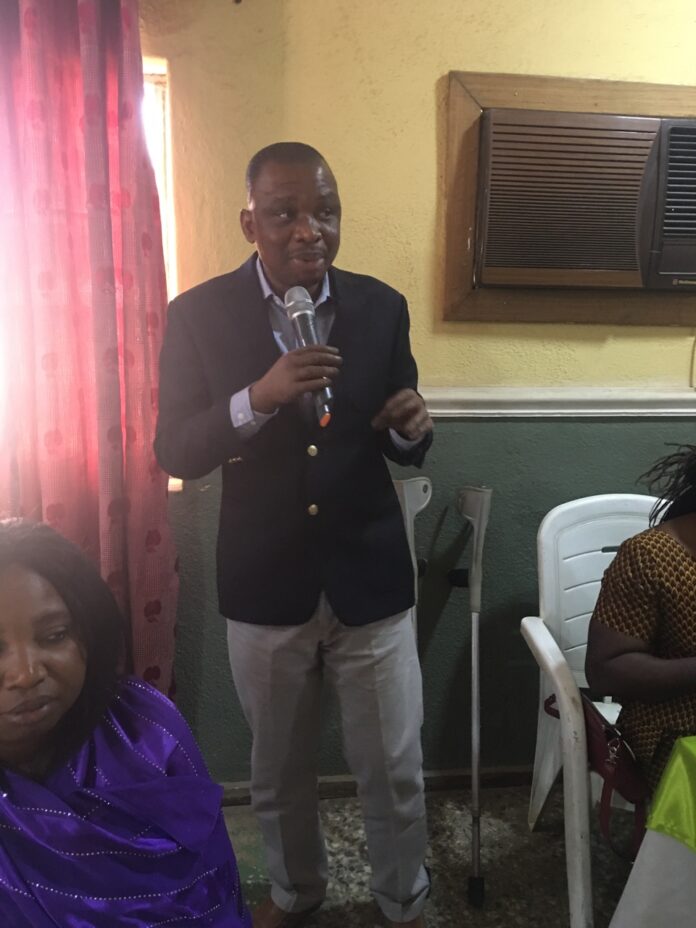Stakeholders in the disability community in Nigeria led by the Centre for Citizens with Disabilities, CCD, on Friday, validated and disseminated some inclusive videos on the 2022 civic space outlook for West Africa and Nigeria security surveillance.
In his welcome remark, CCD Executive Director, David Anyaele, highlighted the importance of the videos to the wellbeing and civic space rights of people with disabilities, PWDs, in the country.
He said the goal of the project, amongst others, is to sensitize PWDs on the prevailing breach in civic space rights, digital privacy and protection rights as well as safeguarding them.
He listed the primary objectives of the project, which was supported by Spaces for Change, includes to push for stronger regulatory controls and demand accountability for varying forms of digital surveillance operations in Nigeria by state agents and corporations; Digital storytelling to narrate the impact of securitization of the civic space and civil society operations; and tame arbitrary conduct of security agents by pushing for legislative and judicial reviews of repressive security laws and policies.
According to Mr. Anyaele, “Over the years, the Nigerian Government has been noted for engaging extreme force in response to security issues.
“This same strategy has been employed on dissents, with its implications
affecting civic space actors, some targeted and designated as terrorist, even though their operations and actions are not consistent with terrorism, and PWDs are not left out.
“The rapid advancement and innovation in technology pushed for ‘digitivism’ (digital activism), a broadened expression of civil society operations to online civic space, where civil society actors, including actors with disabilities have found their place.”
Mr. Anyaele believes this expansion has been exploited for the legislation of repressive policies and engagement of tactics for digital security by state actors to track and clamp down on dissents, through surveillance and digital privacy breach etc.
“With up to 30-million people living with disabilities in Nigeria, a large percentage are unaware of their civic space-digital rights, due to inaccessibility hereby increasing their vulnerability and
making them susceptible to attack.
“It is important to note that the effect and impacts of repressive security policies affect every citizen and civil society actors, including PWDs and
they must take protective measures to protect themselves from grievous impacts of securitization like any other Nigerian citizen.”
CCD Executive Director noted that the brutal attack by security agencies on protesting PWDs on November 25, 2019 at the gate of the Niger Delta Development Commission, NDDC’s headquarters, in Port Harcourt, for demanding access and inclusion in NDDC’s programs, and the peaceful demonstration of PWDs at the National Assembly in 2020, demanding inclusion in the national budget, are two examples of how far opposing actors could go to repress civic space actors.
He explained that the fact that both state and non-state actors have attacked PWDs highlights the fact that everyone is susceptible to harassment and insecurity, whether online and offline.
He stressed that in order to enable PWD civic space actors to connect their advocacy strategies with recurring civic space trends, CCD is translating IEC materials that will inform and safeguard them.
His words: “The 2022 Civic Space Outlook” was made to highlight how civic space actors have been suppressed and the trends in the use of repressive measures by both state and non-state actors.
“The “Security Surveillance” videos, which focuses on digital rights, privacy breaches, and protection violations, along with their impacts, exposes the repressive tactics used by opposing
parties in civic space.”
The stakeholders’ forum which was held at the Academy Guest House, Agidigbin, Ikeja, Lagos, however reached concesors on the following:
● Improved public knowledge and awareness of the civic space repressions, securitization and digital right threats for civic space actors.
● Availability/dissemination of IEC materials for advocacy strategies for the Nigerian civic space.


